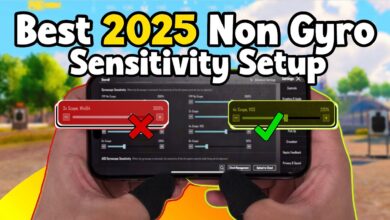“I just got tired of hearing it and just thought it was best for me to move on” – Patrick Ewing admits he regrets leaving the Knicks out of spite
Patrick Ewing’s New York Knicks goodbye tour didn’t go as he would have hoped — or as anyone expected. For a man who had bled blue and orange since stepping onto the Madison Square Garden hardwood in 1985, the ending came not with celebration but silence.
There was no banner farewell. No season-long sendoff. Just a trade. And then, just like that, he was gone. The greatest Knick of his generation and arguably of all time left in 2000, not with a tribute video but through the back door of a four-team trade.
Ewing’s spite
For Ewing himself, the exit from New York was colder still, and more complicated even many years later.
Advertisement
“In hindsight, I should have stayed,” he said. “But after 15 years of hearing the same thing, rumblings from your teammates, or in a meeting, they are saying that the Knicks are better off without him, they need to move on from him. After 15 years of hearing that, you just get tired of it. So, I just got tired of hearing it and just thought it was best for me to move on.”
The story of Ewing’s departure didn’t begin in the 2000 offseason. It started years before that, behind the closed doors of locker rooms and front office meetings, where whispers grew louder with every playoff disappointment.
Though “Big Pat” had anchored the Knicks to 13 straight playoff appearances, two Eastern Conference titles, and a fabled 1994 Finals run that took Houston to Game 7, the narrative slowly shifted. The knee surgeries, his advancing age, and the wear-and-tear of two decades in the post began to outweigh the loyalty and leadership he had offered without fail.
The frustration wasn’t born from a single moment but had layered over the years. From the ’94 Finals heartbreak to the 1999 run that saw him sidelined with an Achilles injury as the Knicks reached the Finals without him, the suggestion that Ewing’s time had passed grew bolder.
Advertisement
By the end of the 1999–2000 season, his 15th in the league, those whispers had become solid. And so, with legacy hanging in the balance, he chose to leave.
The trade out of New York
In the 2000 offseason, Ewing, 38 at the time, requested a trade. It was less a demand and more a resignation, a quiet nod to a fractured relationship. The Knicks obliged and agreed to a four-team, 12-player trade that sent the former Hoya to the Seattle SuperSonics. The deal shattered the longest-running relationship between a player and a franchise in the NBA at the time.
Advertisement
“They traded me to Seattle, and I agreed to be traded to Seattle,” he added. “Things didn’t work out the way that we thought in Seattle, so then I went to Orlando. That was just probably a wrong move.”
In Seattle, Ewing averaged just 9.6 points and 7.4 rebounds per game, down drastically from his career averages of 21.0 points and 9.8 rebounds. In Orlando, he played even fewer minutes, largely coming off the bench. The once-dominant big man who had defined New York basketball for a decade and a half found himself relegated to a supporting role in unfamiliar jerseys.
By the time he officially retired on Sept. 18, 2002, his final seasons had done little to add to his legend. They felt like a long, silent fadeout after a symphony.
Still, Ewing’s career numbers were Hall of Fame worthy, with over 24,000 career points, 11 NBA All-Star selections, and a spot on the NBA’s 50th and 75th Anniversary Teams. But the decision to leave New York, fueled by spite and exhaustion, clouded what could have been a more graceful goodbye. His No. 33 jersey has been retired, although they never gave him the sendoff he deserved.




